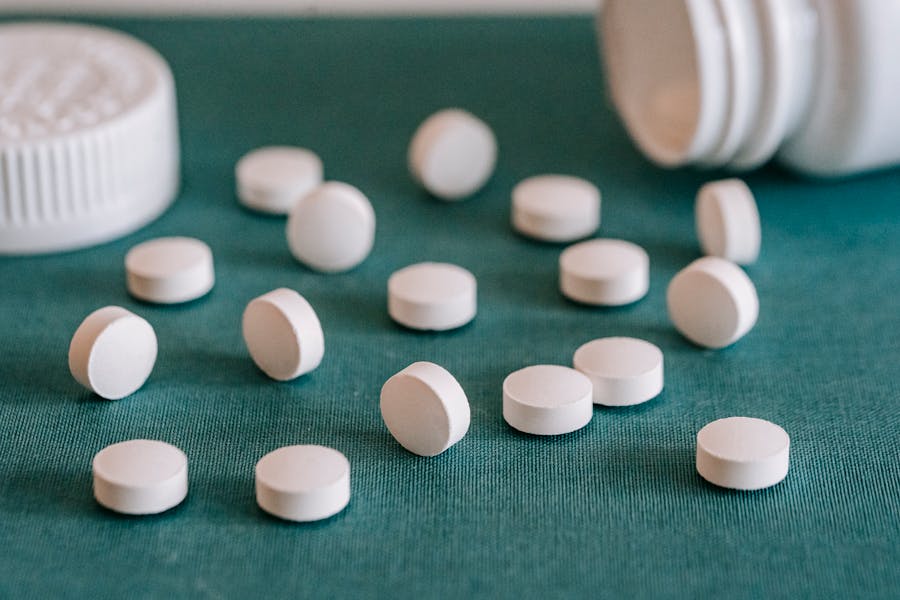Introduction
Having a healthy liver is essential for overall health and well-being. The liver is a vital organ that helps to filter toxins, regulate digestion, and produce hormones. Poor dietary habits can have a detrimental effect on the health of the liver. Eating a balanced diet that is rich in nutrients, vitamins, and minerals can help keep the liver functioning properly. This article provides tips to help improve liver health through nutrition and promote overall health.
Eat these Top 10 Superfoods for Liver Health

In order to ensure that your liver is healthy and functioning optimally, it is important to incorporate certain foods into your diet. Here are the top 10 superfoods for liver health and how to include them in your diet.
- Nuts: Incorporating a variety of nuts into your diet can help support the health of your liver. Nuts are a great source of healthy fats and protein which can help to reduce inflammation in your liver. Try adding a handful of nuts to your breakfast oatmeal or incorporating nuts into your favorite baked goods recipes.
- Leafy Greens: Leafy greens such as kale, spinach, and Swiss chard are full of important vitamins, minerals, and antioxidants that can help protect your liver from damage. Try adding a handful of leafy greens to your morning smoothie or make a simple salad with your favorite greens.
- Avocados: Avocados are a great source of healthy fats which can help reduce inflammation and support liver health. Try adding sliced avocado to your sandwiches or make simple guacamole to serve with your favorite dishes.
- Berries: Berries are full of antioxidants that can help protect your liver from damage and disease. Enjoy a handful of your favorite berries as a snack or add them to your breakfast yogurt or oatmeal.
- Fatty Fish: Fatty fish such as salmon, mackerel, and sardines are a great source of omega-3 fatty acids which can help reduce inflammation in the liver. Try adding a serving of fatty fish to your weekly meal plan or make a simple fish dish with your favorite ingredients.
- Turmeric: Turmeric is a powerful spice that is full of antioxidants that can help support liver health. Try adding turmeric to your favorite recipes or make a simple turmeric tea with honey and lemon.
- Garlic: Garlic is full of antioxidants and anti-inflammatory properties which can help protect your liver from damage. Try adding garlic to your favorite recipes or make a simple garlic sauce to serve with your meals.
- Extra Virgin Olive Oil: Extra virgin olive oil is a great source of healthy fats which can help reduce inflammation in the liver. Try adding extra virgin olive oil to your favorite recipes or use it to make a simple salad dressing.
- Cruciferous Vegetables: Cruciferous vegetables such as broccoli, cauliflower, and Brussels sprouts are full of important vitamins and minerals which can help support liver health. Try adding a variety of cruciferous vegetables to your weekly meal plan or make a simple stir-fry with your favorite ingredients.
- Green Tea: Green tea is full of antioxidants that can help protect your liver from damage and disease. Try enjoying a cup of green tea throughout the day or make a simple iced tea with your favorite ingredients. By incorporating these superfoods into your diet, you can help support the health of your liver and ensure it is functioning optimally.
Consider Healthy Fats for Liver Health

Given the Livers’ importance, it is crucial to consume healthy fats that support liver health. Healthy fats can be divided into two categories: monounsaturated fats and polyunsaturated fats. Monounsaturated fats are found in foods such as olive oil, avocados, almonds, and peanuts. They help to reduce inflammation and lower cholesterol levels, both of which are beneficial to the liver. Polyunsaturated fats, on the other hand, are found in fatty fish such as salmon, mackerel, and sardines. These fats are known to reduce inflammation, reduce the risk of heart disease, and provide essential fatty acids to the body.
In addition to the above types of fats, omega-3 fatty acids are also beneficial to the liver. These are found in flaxseed, walnuts, and fatty fish. Omega-3 fatty acids help reduce inflammation, reduce the risk of heart disease, and improve overall liver health.
It is important to note that not all fats are beneficial to the liver. Trans fats are found in processed foods such as chips, cookies, and fried food and should be avoided. These fats increase inflammation, raise cholesterol levels, and can negatively affect the liver.
Incorporate Fermented Foods Into Your Diet

Fermented foods are an excellent way to improve your overall health, and especially your liver health. This is because fermented foods are rich sources of beneficial bacteria, known as probiotics, which help to protect the liver and improve its function. Research has shown that consuming fermented foods can help to reduce inflammation, improve digestion, and support the detoxification process within the body.
First, fermented foods are a great source of probiotics. Probiotics are beneficial bacteria that support digestive health by aiding in the digestion of food and the absorption of nutrients. In addition, these bacteria help to stimulate the production of bile acids, which are essential for removing toxins from the liver. Furthermore, probiotics can help to reduce inflammation in the body, improving liver health and reducing the risk of liver-related diseases.
Second, fermented foods are also a great source of vitamins and minerals that are important for liver health. These include vitamins A, B, and C, as well as minerals such as zinc and selenium. These nutrients help to protect the liver from oxidative damage, reduce inflammation, and support the detoxification process.
Finally, fermented foods are also a great source of antioxidants, which help to protect the liver from damage caused by free radicals. Free radicals are unstable molecules that can damage the cells in the body and cause disease. Antioxidants help to neutralize these free radicals, reducing the risk of liver-related diseases.
The Best Herbs and Spices for Your Liver

The liver is one of the body’s most important organs, performing a range of essential functions such as filtering toxins from the body and producing bile. Supporting liver health is therefore key to maintaining overall health and well-being. A number of herbs and spices have been found to possess liver-supporting properties and can be easily added to meals and snacks.
One of the most beneficial herbs for liver health is turmeric. This is due to its active ingredient, curcumin, which contains powerful antioxidant and anti-inflammatory properties. Studies have shown that curcumin may help to protect the liver from damage caused by toxins, as well as aid in the regeneration and repair of liver cells.
Ginger is another herb that can be beneficial for the liver. This is due to its anti-inflammatory and antioxidant properties, which can help to reduce inflammation and oxidative stress in the liver. Additionally, ginger has been found to help reduce the accumulation of fat in the liver.
Milk thistle is another herb that has been used traditionally to support liver health. This is due to its active ingredient, silymarin, which has been found to possess antioxidant and anti-inflammatory properties. Studies have shown that silymarin may help to protect the liver from damage caused by toxins, as well as aiding in the regeneration and repair of liver cells.
Additionally, cumin is a popular spice that is believed to have liver-supporting properties. This is due to its active ingredient, thymoquinone, which has been found to possess antioxidant and anti-inflammatory properties. Studies have shown that thymoquinone may help to protect the liver from damage caused by toxins, as well as aiding in the regeneration and repair of liver cells.
Finally, garlic is another spice that has been found to possess liver-supporting properties. This is due to its active ingredient, allicin, which has been found to possess antioxidant and anti-inflammatory properties. Studies have shown that allicin may help to protect the liver from damage caused by toxins, as well as aiding in the regeneration and repair of liver cells.
Understand the Role of Vitamins and Minerals

As already indicated, the liver is responsible for many essential functions, including the production of bile, the metabolisation of fats, proteins, and carbohydrates, and the removal of toxins from the body. Therefore, to keep the liver functioning optimally, it is important to get the right vitamins and minerals.
Vitamins are organic compounds that the body cannot produce on its own and must be obtained through diet or supplementation. They are essential for many metabolic processes, and deficiencies can lead to health problems. Among the most important vitamins for liver health are A, B, C, and D.
Vitamin A is important for maintaining a healthy immune system, which can help protect the liver from damage caused by toxins. It is also necessary for the production of bile and the absorption of fats. Vitamin B helps with digestion and the metabolism of fats, carbohydrates, and proteins. Vitamin C is an antioxidant that can help protect the liver from damage caused by free radicals. Vitamin D helps regulate the absorption of calcium and also helps with the production of bile.
Minerals are inorganic compounds that are essential for the body’s metabolic processes. The most important minerals for liver health are calcium, magnesium, selenium, and zinc. Calcium helps protect the liver from damage caused by toxins and helps with the production of bile. Magnesium helps with the metabolism of fats, carbohydrates, and proteins, and also helps with the absorption of vitamins. Selenium helps with the production of antioxidants that can protect the liver from damage caused by free radicals. Zinc helps with digestion and also helps with the absorption of vitamins.
It is important to get enough vitamins and minerals for optimal liver health. Eating a balanced diet that includes fruits, vegetables, lean proteins, and whole grains is the best way to get the necessary vitamins and minerals. However, in some cases, supplementation may be necessary. Speak to your healthcare provider to determine if you need to take any supplements.
Reduce Sugar Intake

For those looking to improve their liver health, reducing sugar intake is another important step in managing what you eat. Excess sugar can put a strain on the liver and can contribute to the development of fatty liver disease, a common health condition. Follow these tips to reduce sugar intake and improve your liver health.
- Read Nutrition Labels: When shopping for food and drinks, be sure to check labels for added sugars. Look for words such as “sugar,” “syrup,” “sucrose” or “high-fructose corn syrup,” which are all types of added sugars.
- Avoid Processed Foods: Processed foods are notorious for being full of added sugars, so avoiding these items will help to reduce sugar intake. Choose fresh, natural foods instead.
- Choose Low-Sugar Alternatives: If you’re looking for a sweet treat or a quick snack, opt for low-sugar alternatives such as fresh fruit, dark chocolate, or unsweetened yogurt.
- Cut Back on Sugar-Sweetened Beverages: Sugary drinks such as soda, energy drinks, sweet tea, and fruit juice are full of added sugars. Try to limit these drinks and opt for plain water or unsweetened beverages such as coffee and tea instead.
- Cook More Meals at Home: Making meals at home allows you to control exactly how much sugar goes into your food. Choose healthier recipes and use natural sweeteners such as honey or maple syrup if needed. By following these tips, you can reduce your sugar intake and improve your liver health in the process. Remember to check nutrition labels, avoid processed foods, choose low-sugar alternatives, cut back on sugary drinks, and cook more meals at home.
Explore the Role of Dietary Fiber

Despite the liver being an essential organ that plays a critical role in the body’s overall health, many people suffer from liver conditions that can be caused by a wide variety of factors, including poor diet and lifestyle choices. Fortunately, research has found that dietary fiber may help support liver health.
Dietary fiber is a type of carbohydrate that cannot be broken down by the body’s digestive system. Instead, it passes through the digestive tract, absorbing water and other nutrients along the way. This helps to slow digestion and reduce the risk of spikes in blood sugar levels.
Additionally, dietary fiber can help support liver health by binding to bile acids and helping to remove them from the body. Bile acids are produced in the liver and stored in the gallbladder, where they help to break down fats. When bile acids are removed from the body, the liver is able to better process fats, reducing the risk of fatty liver disease.
Dietary fiber can also help to reduce inflammation in the body, which is often associated with liver conditions. Foods that are rich in dietary fiber, such as whole-grain bread and cereals, legumes, fruits, and vegetables, can all help to reduce inflammation and support liver health.
Finally, dietary fiber can help to reduce cholesterol levels in the body. High cholesterol is associated with an increased risk of liver disease, so reducing cholesterol levels can help to support overall liver health.
Conclusion
All in all, there are many ways to improve liver health through nutrition. Eating a balanced diet that includes whole grains, lean proteins, and healthy fats, as well as limiting alcohol intake, avoiding processed and sugary foods, and eating plenty of fruits and vegetables can all help to improve liver health. By following these tips, you can help to keep your liver healthy and functioning properly.





















